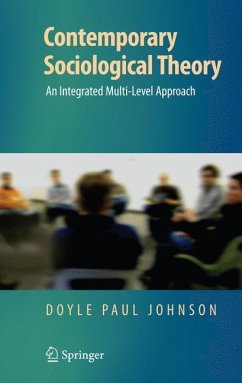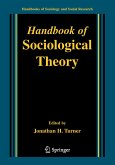The overall organizing framework employed in this textbook is based primarily on the distinctions among different levels of social reality. Theorists routinely distinguish between micro and macro levels of analysis. The micro level involves a focus on human agency and choice and the dynamics of personal relationships and small-scale social systems of various types, particularly those involving face-to-face encounters. The macro level, in contrast, is concerned with larger-scale social systems, typically at the level of total societies.
In addition to micro and macro levels, various intermediate (or meso ) levels of analysis may also be identified. This book is distinctive as a theory text in giving explicit attention to organizations, communities, markets, and socioeconomic classes as meso-level social formations that can be identified between the micro level of face-to-face relations and the macro-level institutional structures of the overall society.
Contemporary Sociological Theory is divided into three sections: the first section introduces contemporary sociological theory and includes the historical development, the early European sources, and the development of American sociology. Section two presents the various major theoretical perspectives that have long been considered the core of contemporary sociological theory and includes the three levels of social interaction - macro, micro and meso. The last section covers contemporary perspectives that reflect multiple levels of analysis such as feminist theory, structuration theory and systems theory, the sociobiological perspective and cultural systems.
With its unique focus on multiple levels of analysis, this graduate-level text will be of interest to sociologists and those they teach.
In addition to micro and macro levels, various intermediate (or meso ) levels of analysis may also be identified. This book is distinctive as a theory text in giving explicit attention to organizations, communities, markets, and socioeconomic classes as meso-level social formations that can be identified between the micro level of face-to-face relations and the macro-level institutional structures of the overall society.
Contemporary Sociological Theory is divided into three sections: the first section introduces contemporary sociological theory and includes the historical development, the early European sources, and the development of American sociology. Section two presents the various major theoretical perspectives that have long been considered the core of contemporary sociological theory and includes the three levels of social interaction - macro, micro and meso. The last section covers contemporary perspectives that reflect multiple levels of analysis such as feminist theory, structuration theory and systems theory, the sociobiological perspective and cultural systems.
With its unique focus on multiple levels of analysis, this graduate-level text will be of interest to sociologists and those they teach.








